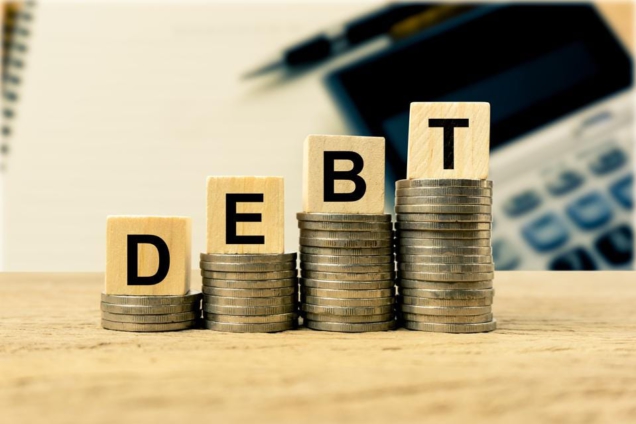Majority Leader in Parliament, Osei Kyei-Mensah-Bonsu, has indicated that the Electronic Transaction Levy (e-levy) will help reduce increasing debt stock.
His comment comes after Parliament approved the controversial Electronic Transactions (E-Levy) Bill on Tuesday afternoon.
This decision was reached after the Consideration Stage was completed by a Majority-sided House after the Minority Group staged a walk out to register their disapproval of the levy.
This notwithstanding, the bill was considered under a certificate of urgency and was adopted at a reduced rate of 1.5% from the initial 1.75%.
President Akufo-Addo is expected to assent to the bill.
The tax which has become a subject of debate among Ghanaians is expected to rake in close to ¢6 billion in tax revenue for the country.
Addressing the media, Osei Kyei-Mensah-Bonsu said the passing of the bill means that “we will curtail the rate of borrowing and thereby curtail the increasing debt stock. Who in Ghana, which MP will say that he doesn’t like this?”
According to him, since the bill has been passed, the next step to take is for “Parliament to look at its reportage. How much is coming? How are we applying those revenues, I think that Parliament overside responsibility must come to play.”
Meanwhile, the Ghana Revenue Authority (GRA) has already hinted that its structures have been revised and ready to ensure mobilization of the income.
Background
Ghana’s public debt stock hit ¢341.8 billion as of the end of September 2021, the November 2021 Bank of Ghana Summary of Economic and Financial Data has revealed.
This is equivalent to 77.8% of Gross Domestic Product (GDP) and confirms concerns by analysts and economists that the country’s debt has reached alarming levels.
Between July and September, 2021, ¢5.9 billion fresh loans were added to the total debt. The surge in the debt came largely from the domestic debt and also as a result of the slight depreciation of the cedi to the dollar.
However, the government had indicated in its Issuance Calendar for the final quarter of 2021 that it will borrow just about a billion cedis, and therefore many market watchers, analysts and economists will be hoping the debt level for the final quarter of this year will at least remain stable from the present level.
According to the data from the Bank of Ghana, the domestic debt went up to ¢178.1 billion in September 2021, up from ¢173.9 billion recorded in July 2021. This is equivalent to 40.5% of GDP.
The resultant consequence is the ‘crowding out effect” whereby businesses are competing for borrowed funds with the government.
Importantly, the financial sector resolution bond stayed the same at ¢14.9 billion in September, 021. This is equivalent to 3.4% of GDP.
For the external debt, it fell by $100m in August to $27.9 billion in September 2021, equivalent to 37.2% of GDP.
However, the cedi component of the external debt shot up because of the decline in the value of the cedi to dollar.
Latest Stories
-
CAFCL: Al Ahly set up historic final with ES Tunis
10 mins -
We didn’t sneak out 10 BVDs; they were auctioned as obsolete equipment – EC
4 hours -
King Charles to resume public duties after progress in cancer treatment
5 hours -
Arda Guler scores on first start in La Liga as Madrid beat Real Sociedad
5 hours -
Fatawu Issahaku’s Leicester City secures Premier League promotion after Leeds defeat
5 hours -
Anticipation builds as Junior Speller hosts nationwide auditions
5 hours -
Etse Sikanku: The driver’s mate conundrum
6 hours -
IMF Deputy Chief worried large chunk of Eurobonds is used to service debt
6 hours -
Otumfuo Osei Tutu II celebrates 25 years of peaceful rule on golden stool
6 hours -
We have enough funds to pay accruing benefits; we’ve never missed pension payments since 1991 – SSNIT
7 hours -
Let’s embrace shared vision and propel National Banking College – First Deputy Governor
7 hours -
Liverpool agree compensation deal with Feyenoord for Slot
7 hours -
Ejisu by-election: There’s no evidence of NPP engaging in vote-buying – Ahiagbah
8 hours -
Ejisu by-election: Independent ex-NPP MP’s campaign team warns party against dubious tactics
8 hours -
ZEN Petroleum supports Tse-Addo Future Leaders School
9 hours

